#Diaspora revolt
Explore tagged Tumblr posts
Text
You... do realize that half your premise is what happened historically?
True, the Hasmoneans mostly took Greek and not Roman names, but the point stands. They sided with the Romans, though not strongly enough to help destroying the Temple. The claimants to their name - the Herodian dynasty - were only sometimes liked, most of the time the people hated them. They did also have way less power under the Romans, though. A leader that possibly claimed to be of the Davidic line started a rebellion against the Romans 70 years after the Temple destroyed, using guerrilla war tactics. His name was Shim`on bar Cuseba, AKA Bar Cochva'. And he failed.
Update: actually, the final ruler of the Herodian dynasty actually did fight alongside the Romans against the Great Rebellion. So, basically, all you're asking for is for the Romans to give them more power and independence. And for the Jews in Judea to hate the Romans more than anything else. And maybe fpr the Hasmonean line to survive all the way up to the Bar Cochva' revolt. And most importantly, you expect a unified Jewish front against the Romans. Which, historically, wasn't exactly the case.
You also talk about the Diaspora joining in to help their brethren in Judea. Which, well, if the Diaspora revolt had happened a decade or so later it might work. Because, you see, between the Great Revolt and Bar Cochva' one there was one other Jewish revolt. You may not have heard of it because it happened in the Diaspora - at least, I didn't know much about it until relatively recently.
The expectation for outside support by Nubians... well, IDK. I suppose in theory it could happen. The Judeans might turn to the Perthian empire, though - as one of the central enemies of the Romans in that area, they might help. But that could lead to a plethora of other problems.
Honestly, I'm not sure what a Judea freed from Romans would do. They'd probably try rebuilding the Temple, but getting them to invest in important services like medicine and astronomy/astrology... Depending on how the war is perceived culturally, it might be hard. Sciences would be considered a Greek or Roman thing, not belonging in Judea. If they kept close toes with the Alexandrian Jewish community it might end up slightly different, but I don't think the Egyptians are likely to support a rebellion against the Romans.
I think it would be interesting to have a deeper look at the Diaspora revolt and see how cooperation between it and the Bar Cochva' revolt might work, and what might it lead to.
So, for the time being, I pretty much dominate the #alternate jewish history tag. By which I mean, all posts under this tag are ones I either wrote or reblogged. This is, of course, meaningless. Even so, I intend to take care of this little corner of my supposed kingdom, though invaders are fully invited. Please, it would be my pleasure if you add to this tag.
Either way, this tag currently has three AUs. As the purported owner of this tag, I intend to list them - while tagging the original creator when necessary.
The first AU is going to be the one I conceived of, naturally, since there can be no ownership disputations of it: the Jewsade.
The Jewsade is an AU based on the historical divergence of His Dark Materials. However, it's an AU worth exploring for its own merit IMO. Its divergence point is around the 1520s, with the Jewish false Messiah David Reubeni and Shəlomoh Molcho. In our world those two ended up eventually killed by the Spanish Inquisition; in the world of the Jewsade, they succeeded in getting the artillery David was trying to obtain and used it to conquer Eretz Yisra'el from the Ottomans. What happened with it later? Currently it's a riddle I can't answer, possibilities range from a disaster by the hands of the Ottoman Empire or Portugal to the continued existence of a Jewish kingdom in the Middle East, barely holding its own against both Christians and Muslims who want to take the Holy Land to themselves. Exploration of it is still at work, and I'm considering presenting it in random documents of various sorts from the period. It doesn't currently have a clear masterpost, I might work on that in the future.
The second AU I've put under this tag belongs to @aviad1b. This is the Hasmonean independence AU. It's not too well-built as of yet (and might also be related to the next AU, we'll see), but the basics are: the Hasmoneans don't give up their independence to the Romans and remain a kingdom for longer. This is a bit of a hard feat, because the Hasmoneans were sort of allies to the Romans even prior to that and the civil war is what caused them to turn to a passing Roman general to solve the dispute. After you avoid that... well, the Hasmonean dynasty still needs to keep its independence between the ever-greedy Rome and the rising Perthian empire, which is not going to be easy by any means. Even if they manage surviving one civil war... well, there will be others. However, it might be interesting to picture them somehow still prevailing, despite all the odds.
The third and more recent addition comes from @magnetothemagnificent's idea of a world where the 2nd Temple was never destroyed, the 2nd Temple Still Standing AU as I chose to call it, if you have different suggestions I'm open to hear them. A lot of the discussion on it includes the note of how much we don't know what the world will look like. Christianity might not exist, or be way smaller. The Jewish Diaspora would be way smaller adn would be mostly merchants. New technologies would be applied to old traditions and sometimes adjusted to them - the beacons to indicate the start of the month will stay, but their role would be fulfilled more with modern communication technology; flights to Eretz Yisra'el will commonly have space for cattle for the Korbanot; Cohanim would dominate the field of dermatology in order to be experts on Tzara`at, some working in construction (and some with textiles?) for the other types of it as well; religious institutions will be vastly different, with structures from 2 milennia ago surviving to the Modern Day in some form; Levyim maybe being dominant in fields of music and poetry; maybe melodies used for written texts in the place of punctuation; no written Mishnah or Talmud, things are mostly kept oral; and a lot more stuff.
There's the question, with that latter AU, of how that might happen. No rebellion against the Romans might be a possibility, though a bit hard to pull up. The Hasmonean Dynasty retaining independence can help, hence the reference I've made earlier. The Great Rebellion could also (maybe) fail before it escalated to the level of besiegeing Jerusalem. I really don't know. And unless you go by the "History is a rubber band" theory of time travel, there really isn't any way to know. So I suppose we should all just think about it a little more, and making stuff up can work, as long as you keep an eye on historical events.
Now, you might accuse me of certain hautiness in writing this. Please don't. Believe me when I say, I'm just enthusiastic about alternative Jewish histories, and would like to popularize the use of that tag. I would really like seeing farther AUs based on Jewish history - I had the pleasure to encounter a couple on Facebook, following a workshop on writing alternate Hannukahs in a meet-up organized by a group of interest on Jewish Fantasy in Israel. But there can be many more, and while I would love to contribute where I can and where my help is wanted, I prefer not to start any more than the one I'm already working on. So thank you to all the participants.
Note: the reblog chain for the Hasmonean Independence AU I shared here is only an exchange between me and Aviad. However, the 2nd Temple Still Standing thread includes (beside my and Magnetothemagnificent's posts) contributions from @alyssumlovesthecosmere and @fromchaostocosmos, hope you don't mind I'm tagging you as well.
#jumblr#judaism#jewblr#Jewish history#alternate jewish history#Hasmonean independence au#Judean independence au#Bar kokhva revolt#Bar cochva' revolt#Diaspora revolt
35 notes
·
View notes
Text
Remarkable Discovery at the Tower of David: A 2,000-year-old bronze coin featuring King Antiochus IV Epiphanes, known for his role in the Maccabean 3-year long Bar Kokhba Revolt (the Jews vs the Romans in 133-136 AD), has been unearthed within Jerusalem's historic citadel.
Found by chief conservator Orna Cohen during routine maintenance, this coin showcases Antiochus with a crown and a goddess with a scarf on its reverse. This surprising find at a site thought to have been fully excavated reveals a tangible piece of the tumultuous Hasmonean era, linking the Jews, once again, directly to biblical history, and proving their indigenous connection to Judea.
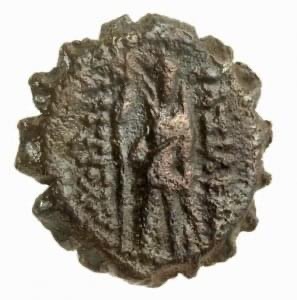
#israel#secular-jew#jewish#judaism#israeli#jerusalem#diaspora#secular jew#secularjew#islam#archaeology#king david#antiochus#Antioch#tower of David#coin#historic coin#historbible#Torah#epiphanes#hasmonian#hasmonian era#Maccabee revolt#bar kokhba revolt
15 notes
·
View notes
Text
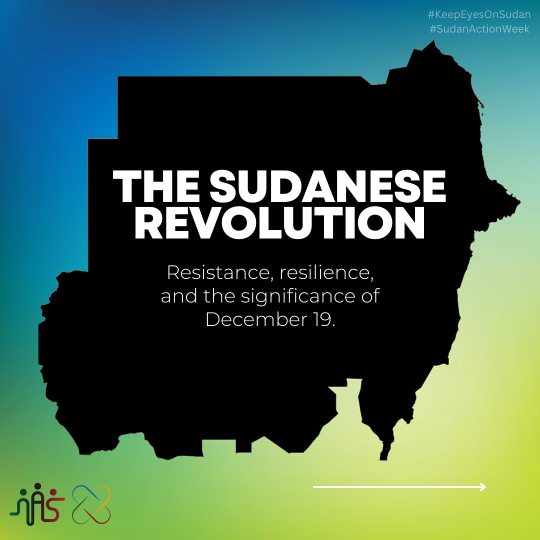
Via NasAlSudan
Learn about the Sudanese revolution, the significance of December 19, and a legacy of resistance and resilience.
Join our call to action today and everyday during Sudan Action Week.
December 19 2023
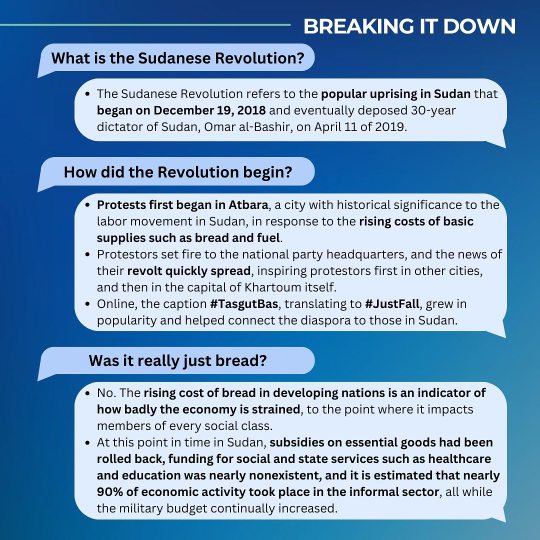
Transcript:
Breaking it down
What is the Sudanese Revolution?
The Sudanese Revolution refers to the popular uprising in Sudan that began on December 19, 2018 and eventually deposed 30-year dictator of Sudan, Omar al-Bashir, on April 11 of 2019.
How did the Revolution begin?
Protests first began in Atbara, a city with historical significance to the labor movement in Sudan, in response to the rising costs of basic supplies such as bread and fuel.
Protestors set fire to the national party headquarters, and the news of their revolt quickly spread, inspiring protestors first in other cities, and then in the capital of Khartoum itself.
Online, the caption #TasgutBas, translating to #JustFall, grew in popularity and helped connect the diaspora to those in Sudan.
Was it really just bread?
No. The rising cost of bread in developing nations is an indicator of how badly the economy is strained, to the point where it impacts members of every social class.
At this point in time in Sudan, subsidies on essential goods had been rolled back, funding for social and state services such as healthcare and education was nearly nonexistent, and it is estimated that nearly 90% of economic activity took place in the informal sector, all while the military budget continually increased.
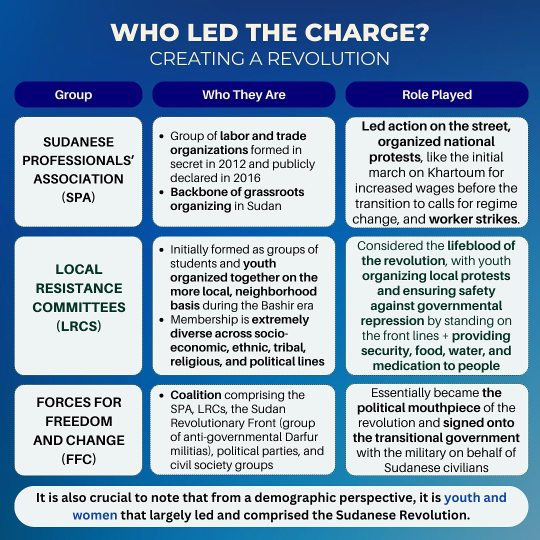
Transcript:
Who led the charge? Creating a revolution
Group: Sudanese Professional's association (SPA)
Who they are:
Group of labor and trade organizations formed in secret in 2012 and publicly declared in 2016
Backbone of grassroots organizing in Sudan
Role played:
Led action on the street, organized national protests, like the initial march on Khartoum for increased wages before the transition to calls for regime change, and worker strikes.
Group: Local Resistance Committees (LRCS)
Who they are:
Initially formed as groups of students and youth organized together on the more local, neighbourhood basis during the Bashir era
Membership is extremely diverse across socio-economic, ethnic, tribal, religious, and political lines
Role played:
Considered the lifeblood of the revolution, with youth organizing local protests and ensuring safety against governmental repression by standing on the front lines + providing security, food, water, and medication to people
Group: Forces for freedom and change (FFC)
Who they are:
Coalition comprising the SPA, LRCS, the Sudan Revolutionary Front (group of anti-governmental Darfur militias), political parties, and civil society groups
Role played:
Essentially became the political mouthpiece of the revolution and signed onto the transitional government with the military on behalf of Sudanese civilians
It is also crucial to note that from a demographic perspective, it is youth and women that largely led and comprised the Sudanese Revolution.
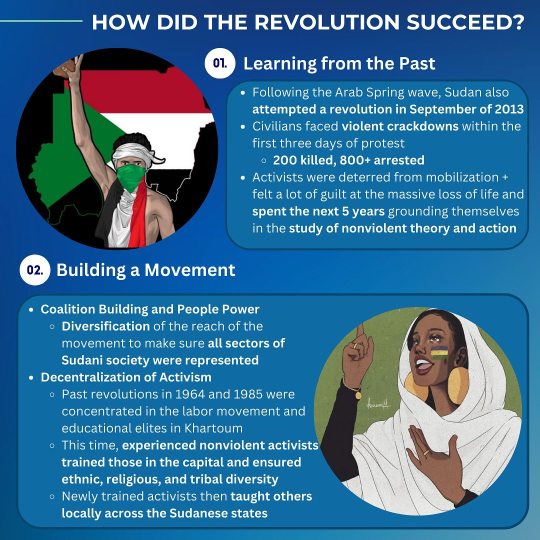
Trabscript:
How did the revolution succeed?
01. Learning from the Past
Following the Arab Spring wave, Sudan also attempted a revolution in September of 2013
Civilians faced violent crackdowns within the first three days of protest. 200 killed, 800+ arrested
Activists were deterred from mobilization + felt a lot of guilt at the massive loss of life and spent the next 5 years grounding themselves in the study of nonviolent theory and action
02. Building a Movement
Coalition Building and People Power
Diversification of the reach of the movement to make sure all sectors of Sudani society were represented
Decentralization of Activism
Past revolutions in 1964 and 1985 were concentrated in the labor movement and educational elites in Khartoum
This time, experienced nonviolent activists trained those in the capital and ensured ethnic, religious, and tribal diversity
Newly trained activists then taught others locally across the Sudanese states
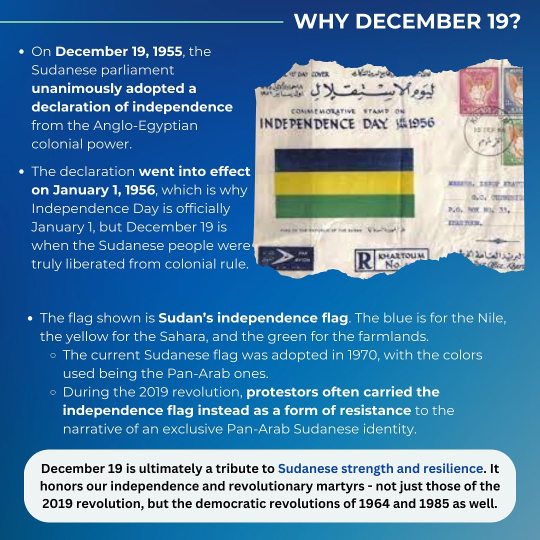
Transcript:
Why december 19?
On December 19, 1955, the Sudanese parliament unanimously adopted a declaration of independence from the Anglo-Egyptian colonial power.
The declaration went into effect on January 1, 1956, which is why Independence Day is officially January 1, but December 19 is when the Sudanese people were truly liberated from colonial rule.
The flag shown is Sudan's independence flag. The blue is for the Nile, the yellow for the Sahara, and the green for the farmlands.
The current Sudanese flag was adopted in 1970, with the colors used being the Pan-Arab ones.
During the 2019 revolution, protestors often carried the independence flag instead as a form of resistance to the narrative of an exclusive Pan-Arab Sudanese identity.
December 19 is ultimately a tribute to Sudanese strength and resilience. It honors our independence and revolutionary martyrs - not just those of the 2019 revolution, but the democratic revolutions of 1964 and 1985 as well.
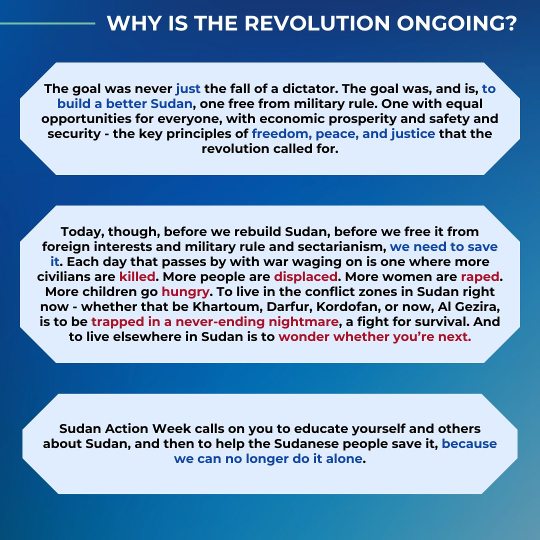
Transcript:
Why is the revolution ongoing?
The goal was never just the fall of a dictator. The goal was, and is, to build a better Sudan, one free from military rule. One with equal opportunities for everyone, with economic prosperity and safety and security - the key principles of freedom, peace, and justice that the revolution called for.
Today, though, before we rebuild Sudan, before we free it from foreign interests and military rule and sectarianism, we need to save it. Each day that passes by with war waging on is one where more civilians are killed. More people are displaced. More women are raped. More children go hungry. To live in the conflict zones in Sudan right now - whether that be Khartoum, Darfur, Kordofan, or now, Al Gezira, is to be trapped in a never-ending nightmare, a fight for survival. And to live elsewhere in Sudan is to wonder whether you're next.
Sudan Action Week calls on you to educate yourself and others about Sudan, and then to help the Sudanese people save it, because we can no longer do it alone.
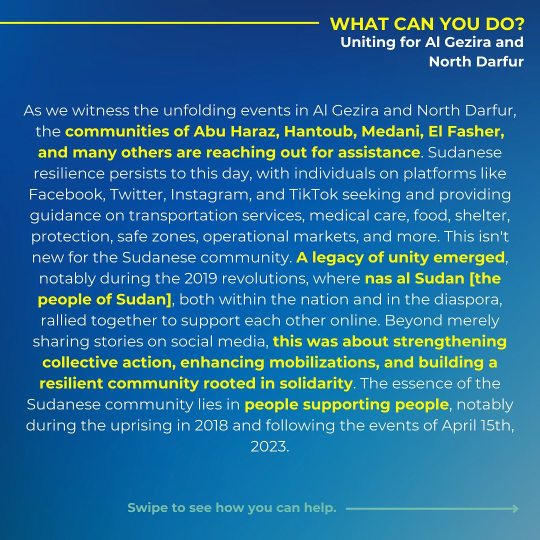
Transcript:
What can you do? Uniting for Al Gezira and North Darfur
As we witness the unfolding events in Al Gezira and North Darfur, the communities of Abu Haraz, Hantoub, Medani, El Fasher, and many others are reaching out for assistance. Sudanese resilience persists to this day, with individuals on platforms like Facebook, Twitter, Instagram, and TikTok seeking and providing guidance on transportation services, medical care, food, shelter, protection, safe zones, operational markets, and more. This isn't new for the Sudanese community. A legacy of unity emerged, notably during the 2019 revolutions, where nas al Sudan [the people of Sudan], both within the nation and in the diaspora, rallied together to support each other online. Beyond merely sharing stories on social media, this was about strengthening collective action, enhancing mobilizations, and building a resilient community rooted in solidarity. The essence of the Sudanese community lies in people supporting people, notably during the uprising in 2018 and following the events of April 15th, 2023
Swipe to see how you can help.
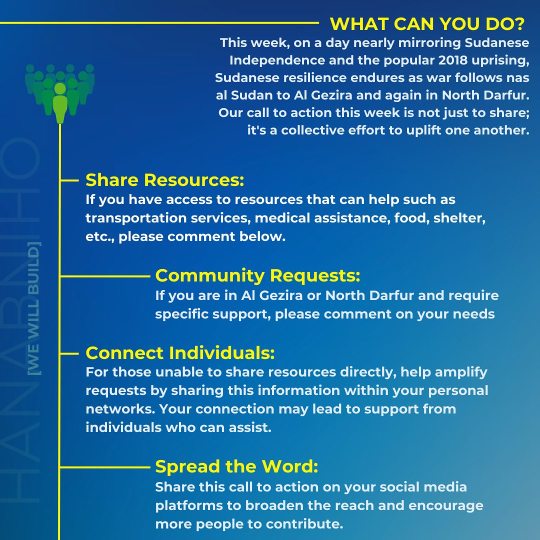
Transcript:
What can you do?
This week, on a day nearly mirroring Sudanese Independence and the popular 2018 uprising, Sudanese resilience endures as war follows nas al Sudan to Al Gezira and again in North Darfur. Our call to action this week is not just to share; it's a collective effort to uplift one another.
Share Resources:
If you have access to resources that can help such as transportation services, medical assistance, food, shelter, etc., please comment below.
Community Requests:
If you are in Al Gezira or North Darfur and require specific support, please comment on your needs
Connect Individuals:
For those unable to share resources directly, help amplify requests by sharing this information within your personal networks. Your connection may lead to support from individuals who can assist.
Spread the Word:
Share this call to action on your social media platforms to broaden the reach and encourage more people to contribute.

Transcript:
Hanabniho
حنبنيهوا
[We will rebuild]
#keepEyesOnSudan
#SudanActionWeek
925 notes
·
View notes
Text
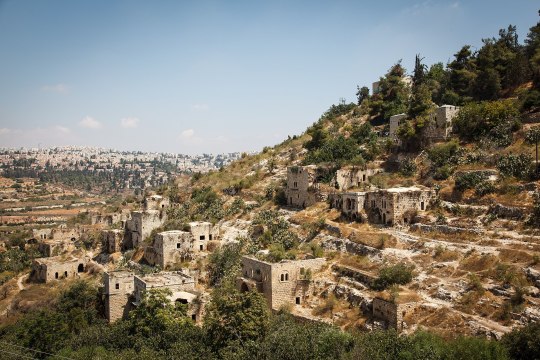
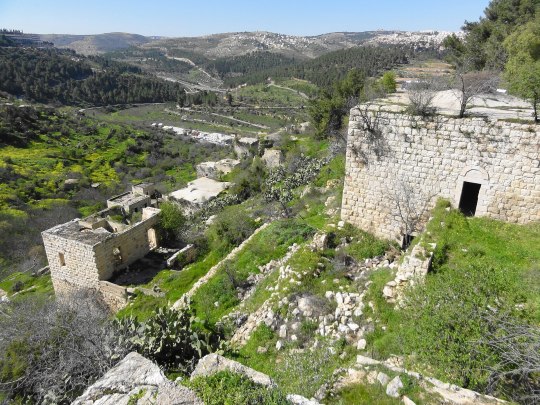
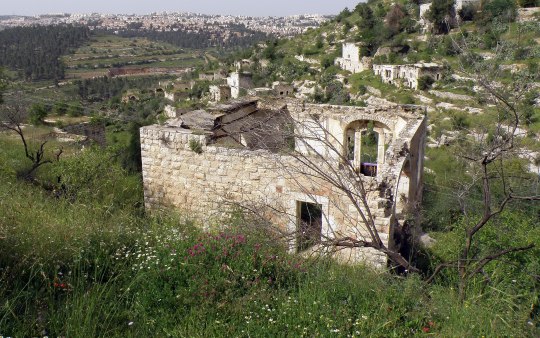
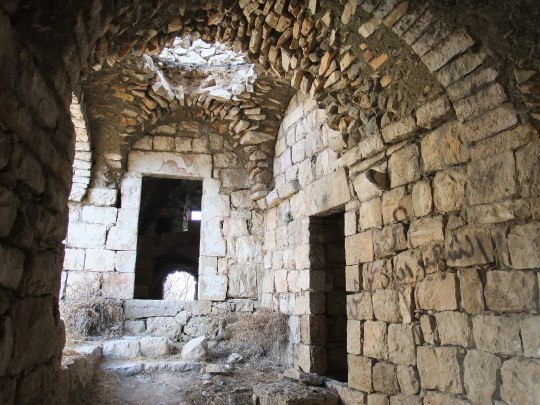
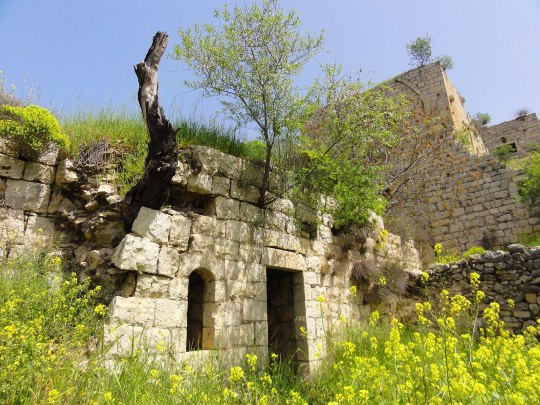
when the homes in the depopulated palestinian village of lifta were originally built is impossible to tell and most likely varies from house to house. the area's been known since ancient times, including having been written about in the hebrew bible. it's retained multiple different names throughout history - lifta by romans, nephto by byzantines, clepsta by crusaders, then lifta again by arabs. in more recent times, the area saw battle in the early 19th century, when it saw a peasant's revolt against egyptian conscription and taxation policies. (egyptian-ottoman ruler muhammad ali had attempted to become independent from the ottoman empire, and sought to use the area of "greater syria" which palestine was apart of as a buffer state.)
the village was predominantly muslim with a mosque, a maqām for local sage shaykh badr, a few shops, a social club, two coffee houses, and an elementary school which opened in 1945. its economy was based in farming - being a village of jerusalem, farmers would sell their produce in the city's markets. an olive press which remains in the village gives evidence to one of the most important crops its residents farmed. the historically wealthy village was known for its intricate embroidery and sewing, particularly of thob ghabani bridal dresses, which attracted buyers from across the levant.
lifta also represents one of the few palestinian villages in which the structures weren't totally or mostly decimated during the 1948 nakba. 60 of the 450 original houses remain intact. from zochrot's entry on lifta:

israel's absentee property law of 1950 permits the state to expropriate land and assets left behind, and denies palestinians the right to return to old homes or to reclaim their property. it's estimated that there's around 400,000 descendants of the village's original refugee population dispersed in east jerusalem, the west bank, jordan, and the palestinian diaspora.
like many depopulated palestinian houses, some of those in lifta were initially used to settle predominantly mizrahi immigrants and refugees, in this case 300 jewish families from yemen and kurdistan. the houses weren't registered in their names, and the area generally saw poor infrastructure and no resources including water and electricity provided by the government. most left in the early 1970s as a part of a compensation program to move out people who'd been settled in depopulated palestinian houses - if they didn't, they were referred to as "squatters" and evicted. (holes were even drilled in the roofs of evacuated buildings to make them less habitable). the 13 families which remain there today only managed to do so because they lived close to the edge of the village.
in 1987, the israeli nature reserves authority planned to restore the "long-abandoned village" and turn it into a natural history center which would "stress the jewish roots of the site", but nothing came of it. several more government proposals on what to do with the land had been brought up since then. this culminated in in 2021 when the israel land administration announced without informing the jerusalem municipal authorities that it issued a tender for the construction of a luxury neighborhood on the village's ruins, consisting of 259 villas, a hotel, and a mall. since 2023, they've agreed to shelve and "rethink" these plans after widespread objection.
the reasons for the objections varied significantly between the opposing israeli politicians - who see the village as an exemplar of cultural heritage and "frozen in time" model of palestinian villages before 1948 - and palestinians - who largely see the village as a witness of the nakba and a symbol of hope for their return. lifta is currently listed by unesco as a potential world heritage site, a designation netanyahu has threatened to remove several times.
many palestinians who are descendent from its former residents still live nearby. like with many other depopulated palestinian villages, they've never ceased to visit, organize tours of the village, and advocate for its preservation.
#palestine#info#nakba#my posts#the dresses link isnt specific to lifta thobs but provides a good overview#i couldn't find anything online abt lifta's embroidery but some of the book pdfs on palestinian costume i reblogged a while ago have info
415 notes
·
View notes
Note
Can I poke the bear for a moment and get angry? Because I'm seeing "posting as activism" more and more in fandom spaces, and tonight I saw a post that made me lose it.
There is a post about (current events) going around that says, "full offense, but in this time, your own comfort doesn't fucking matter, you should be uncomfortable about things that are happening, and I hope you can fucking live with yourselves if you are quiet. It takes five seconds to retweet or reblog, fuck your aesthetic, fuck your anything aesthetic."
And my god. How dare they.
Yes, there is severely fucked up shit happening. Yes, people should be aware that people are being killed. Yes, there are people who are just shrugging about it and pissing off. But how does reblogging a post certify someone as Good or Bad? How does this person know that someone hasn't already helped out meaningfully in some way, or is still helping out, but on other websites? How does this person know that someone isn't barely holding on by the skin of their teeth, and they would have a mental breakdown if they got closer to any more stressful things?
I know a multitude of people, including myself, who have recently either needed to call lines, check into facilities, move back in with their parents, or go on medication because of how insane things have become in their own lives. How does this person not understand that blogging; being on tumblr; engaging in fandom, having a small space that someone can control in its entirety, is a reprieve for people who are already at their wit's end outside of that space? And that's okay.
(We are not doing the relative privation shit in this house. I refuse to entertain that.)
Ironically, by insisting that people participate in sharing posts when they're already stressed and exhausted, that's a surefire way to make their problems worse, and potentially prevent them from acting helpfully in the future because suddenly, their exhaustion turns into full-blown burnout. That's how it works. Professionals tell you to dial things back if you are too overwhelmed. There is a reason for that. There is a limit to how much people can mentally process and handle. Compassion fatigue exists. For a lot of us, we are already at our limit. We need space to relax, and not have arbitrary obligations thrown on us. That is not our fault, it is not a character flaw, it does not mean we are bad people. And just because horrific things are happening elsewhere, it does not mean we can, or should, stop taking care of ourselves first. Yes, it feels shitty to think, "you know what, I can't reblog this". You bet your ass that I and my friends feel guilty about not being able to engage as much as we think we should, but that is how it goes. I can put my head underwater for a bit. But I cannot keep my head underwater forever. I will drown.
Not to mention the obvious part: guilt-tripping people to the extent of implying they are somehow contributing to genocide, just because they won't reblog a post, and implying they should not be able to live with themselves if they do that, is beyond revolting.
I am angry, and I am not sorry.
--
So many of those kinds of posts—and they turn up during every set of horrific real world events—sound like people who are in a country far away from the events, diaspora at most but probably just randos, venting their impotent rage because it's the only way they can feel productive in a situation where nothing they can do is productive.
239 notes
·
View notes
Text
A year ago today, Hamas butchered 1,200 Israelis, triggering a war in Gaza and another one across Western institutions, campuses, and social media. At American Dreaming, we’ve extensively covered the discourse post-10/7, from the depraved joy the “decolonize” left felt at news of Jews being slaughtered, to the obscene double standards imposed on Israel, to the explosion of full-blown leftist anti-Semitism. We’ve published articles about the young progressives who hate Biden and love bin Laden, the disturbing redefinition of “genocide”, and the absolutely unhinged Western pro-Palistinian activist movement. And after a year of discourse, one thing has been made crystal clear: the political left has an anti-Semitism problem. Everywhere I looked, over these past 12 months, far-left protestors not only tolerated but actively propagated centuries-old anti-Semitism, including celebrating the October 7th massacre and even praising Hitler. It was equal parts disgusting and confusing. How could a movement that, in theory, is supposed to oppose bigotry and racism have so openly embraced it? How did we end up with left-wingers attacking synagogues, creating lists of Zionists, canceling events with “Zionist” participants, defacing Anne Frank memorials, and protesting Israel outside of Auschwitz? How could only half of young adults, by far the most left-leaning age group, disagree with the statement “The Holocaust is a myth”? How did we get to a place where good progressives openly display swastikas, tell Jews to go back to Europe, express the desire to gas them, and perform Hitler salutes? The rhetoric was much the same as it had been for centuries: that Jews are violent, bloodthirsty, imposters — not even Semitic, but a bunch of Europeans playing pretend. Demonstrators held signs with a Star of David in a trash can next to the words “Keep the world clean.” Classic anti-Semitic tropes like the blood libel resurfaced. All of this happened within far-left movements, who now sound eerily like the far right. It’s no wonder that far rightists blend right in at pro-Palestine protests. But why? Integral to the left’s worldview, elaborate theory aside, is solidarity with the underprivileged, be it the poor, ethnic minorities, LGBT people, etc. Logically, the left should be sympathetic to the Jewish people, given their long history of persecution. At a glance, there should be no reason for the hard left to behave functionally the same as neo-Nazis. And yet they do.
Sadly, anti-Semitism, as one of humanity's oldest hatreds, has never been confined to any one ideology. To understand the history of left-wing anti-Semitism, we must first look back to before the concept of the political “left” even existed.
An Extremely Brief History of Anti-Semitism
In 132 CE, during the apex of Roman imperial power, the Bar Kokhba revolt broke out in the troublesome Roman-controlled province of Judea. Emperor Hadrian solved it with all the subtlety of a sledgehammer. In an outright genocidal war, he utterly crushed Jewish resistance, slaughtering large numbers of Jewish civilians and devastating many towns and villages. The destruction of the Second Temple in 70 CE tends to be more remembered by Jews themselves as the beginning of the diaspora, but the events of 135 were when the Jews truly lost their homeland. Although a small population remained, most fled throughout the Middle East or Europe.
Hadrian’s actions were not anti-Semitic per se — Rome was just as brutal to any rebellious subject — but it set the Jews up as a people without a land, a people with nowhere to go whose religion and customs made them visibly other. With the rise of Christianity, the relative religious tolerance typical to polytheistic societies faded away, and the Jews faced constant oppression, at best living as second-class citizens. Of course, Christians have a long history of treating their fellow devotees with murderous contempt if they happen to be the wrong kind of Christian. The massacres of the First Crusade that included Christians as well as Muslims and Jews, the expulsion of Protestants from France, the bloody Anglo-Irish conflict, the Anglican church's persecution of Puritans, and so on. Now imagine what it would mean to openly belong to another faith, one deemed heretical by the Church, the supreme arbiter of morality.
Jews were widely barred from “honest” work — leaving niches in fields considered less savory, like money lending, clerking, pawnbroking, and lawyering. Making the most of the niche they had been forced into by these discriminatory laws — although far from all Jews did such work — led in turn to the stereotype of Jews as greedy, bloodsucking parasites who hated and exploited honest Christians, which, of course, led to even more persecution. Jewish populations were expelled from countries multiple times, or faced savage butchery. There were the brutal Rhineland Massacres of the First Crusade in 1096 CE that saw 800 Jews killed, and expulsion from England in 1290, from France in 1306, and from Spain in 1492. It was a vicious cycle of violent intolerance.
The More Things Change, the More They Stay the Same
In the late 1700s, the birth of European liberalism changed everything. The French Revolution and Napoleon both offered a greater level of religious tolerance toward Jews, making new inroads toward coexistence. After Napoleon’s downfall, despite a rightward reaction, Europe slowly began to liberalize, incorporate Enlightenment values, and move toward democracy. By and large, Jewish people naturally drifted leftward — the monarchist right wing of the 1800s was no friend to them. When socialism made strides decades later, Jews were an influential part of the movement, such as the Bund, a socialist Jewish party in Russia.
At the same time, many Jews were understandably fed up with the still-rampant anti-Semitism in Europe, and started to dream of returning to their ancestral homeland, and so began the seeds of modern Israel.
So far, Jews seemed like natural allies to the left, as an oppressed, marginalized underdog if ever there was one. But anti-Semitism is a powerful, deeply rooted force. Vladimir Lenin forcibly dissolved the Bund in 1921, and all those who did not join the Communist Party were forced to flee abroad or face persecution. It only got worse under Stalin, who systematically eradicated Jewish influence wherever he could find it. His Doctors Plot, in which Stalin invented false charges of treason and espionage toward nine doctors, seven of them Jewish, resembled nothing so much as a classic anti-Semitic purge. Indeed, between 1939 and 1941, the Soviet secret police deported tens of thousands of Jews to Siberia and Kazakhstan. Despite Marxism’s pretensions to antiracism, Soviet anti-Semitism, from Party leadership down to the common comrade, was pervasive, and often intertwined “anti-Zionism” with negative stereotypes about Jews.
It was not until after the Holocaust had been exposed to the world that anti-Semitism finally began to become unfashionable, as humanity took a cold, hard look at the logical conclusion to such hatred. But anti-Semitism did not disappear from either end of the political spectrum.
In the 1960s, James Baldwin explained the pronounced anti-Semitism among the black community in the US, which he tied to attitudes of anti-whiteness and an oppressor/oppressed mindset. In the 1970s, influenced by Soviet propaganda, which relentlessly demonized Zionism and Jews, the Australian Union of Students, dominated by young Trostkyites and Maoists, began following suit on Australian university campuses. When Jewish groups protested, they were physically assaulted.
The ferocious “anti-Zionism” of the Western “New Left” was widely seen as a cover for Jew hatred. In Germany, far-left groups in the 1960s and 70s celebrated the deaths of Israeli civilians in terrorist attacks, engaged in anti-Semitic violence, and schemed to bomb a synagogue. In the famous 1976 Entebbe Raid — in which pro-Palestine terrorists hijacked an Air France plane at gunpoint, then released the non-Jewish and non-Israeli passengers to hold the Israelis and Jews hostage — two of the hijackers were German leftists.
Today’s left ought to be unburdened by such bigotries, at least in theory. Unlike their forebears from previous eras, they did not grow up in a social environment where racism was normal and casual prejudice ubiquitous. The average modern far-leftist is highly educated, affluent, and conscious of systemic biases. They ought to know better. So why don’t they?
Like any complex phenomenon, it has no single explanation. Unlike the far right, which has anti-Semitism encoded into its ideological genetics, leftism is not inherently anti-Semitic. But in true horseshoe fashion, they nevertheless end up in the same place.
The Horseshoe of Anti-Semitism
First, the political far left shares an uncomfortable number of basic assumptions about reality with the far right. Both believe that:
A class of moneyed elites control the government, and democracy is a sham maintained by these vaguely defined, malicious elites.
Proper far-left or far-right beliefs (depending) would naturally take root in society if not for an aggressive campaign of materialist propaganda pushed by these shady elites to distract the masses from realizing their true destiny.
Their cause is one that is so vital and so obviously true that any approach to further it is legitimate, whether that means lying, propagandizing, or committing violence.
The liberal West is evil, degenerate, cruel, and exploitative, and must be crushed at all cost to realize this vision.
This antisocial, conspiratorial worldview is inherent to the far left, to a greater or lesser degree. Name a popular myth about how the West is evil, and a leftist will believe it — whether it’s that the US invaded Iraq to steal oil, or that all Western economies are built purely on the exploitation of developing countries, or that our media and government is controlled by sinister three-letter organizations. Such a mindset is incredibly vulnerable to conspiracy theory — and all conspiracy theories ultimately come back to anti-Semitism.
If you believe the government is controlled by moneyed elites and that the evil force of Zionism has its claws deep in the US government, then the leftist is already 90 percent of the way to being in full agreement with the Nazi. This is how we get university lecturers saying, “Zionists are straight Babylon swine [...] Zionism is beyond a mental illness; it’s a genocidal disease.” It’s how we get progressive screenwriters complaining that “the entertainment industry is ran [sic] by Zionists.” It’s how you get left-wing musicians like Eric Clapton saying, “Israel's running the show, running the world.”
Israel-Palestine is a Uniquely Sore Issue
Second, Israel-Palestine is singularly inflammatory. It takes every problematic tendency the far left already has — shallow performativity, radicalism, narcissism, subordinating truth to ideology, and viciousness toward perceived opponents — and dials it up to eleven. Palestine offers the leftist a classic oppressor-oppressed binary, one that fits the Marxist image of the world perfectly: a cruel, settler-colonialist nation, brutally oppressing a native population, neatly including a white-vs-brown layer of oppression. It also offers a religious layer, where Israel is painted as both a theocracy and a fascistic ethnostate no different from Nazi Germany.
Of course, there are many facts that one must ignore to believe these things. One must ignore that Israel began with legal land purchases, and that among both Israelis and Palestinians you can find people passing for white as well as people who would not. One must ignore that anti-Semitism is on the rise, and that 48 percent of Israel is of Mizrahi (meaning Middle Eastern) origin. One must ignore that Israel is a democracy with Arabs in its parliament, and that the Palestinians harbor many deeply regressive, misogynist, and homophobic values out of touch with modern progressivism.
The Left is Just Too Successful, But Still Needs a Revolution
Third, modern leftism is no longer the struggling worker’s movement it began as. In the early 1900s, the left struggled with real, material problems, such as genuinely unfair wages and labor power imbalances in which employers held all the cards. Protesting for better pay, fewer hours, and more benefits and vacation were real, concrete improvements to fight for. But with these and other battles won — with an eight-hour workday and five-day workweek, with vacation and sick days taken for granted, with LGBT acceptance and racial equality both legally enshrined and culturally mainstream, the modern left had to pivot. Their crusades became less about tangible change in the face of injustice, and more about an opportunity to display righteousness by advancing an incredibly shallow worldview divided between the morally pure and the wicked, with no in-betweens. The ethos of no bad tactics, only bad targets thereby became bad tactics and bad targets.
Jews Just Aren’t Oppressed Enough
Finally, the far left is captured by a narrative in which the underprivileged are the center of attention. There is a foundational leftist belief that the world right now is not only terrible, but actively getting worse due to capitalist exploitation. In this understanding of the world, everything is defined by class struggle between the wealthy, parasitic capitalists, and their victims, the workers, whose labor is exploited for pennies, deliberately keeping the lower classes down.
When taken to its logical end, we are left with a movement that resents success. So where do Jews fit into this? Well, from this grievance-focused, eternally victimized perspective, the Jewish people are just a bit too white, a bit too financially successful, and a bit too well-integrated to be seen as truly oppressed. Rather they are seen as oppressors. Just as Asians are now “helping white supremacy” because they’re more financially successful than other groups on average, Jews are just not persecuted enough. The far left resents success, and the Jews have shown extraordinary perseverance in their achievements. Indeed, the archetypal Jewish businessman, lawyer, or doctor fits perfectly into the petit-bourgeoisie stereotype the far left so intensely loathes.
What’s left is a movement deeply committed to performative role-playing while eschewing achievable goals, pragmatism, and principles. It’s a dreadful state of affairs. There ought to be room for a left-of-center movement to express a sane pro-Palestinian worldview, but it’s been hijacked by radicals who are as ignorant as they are venomous. Any healthy, open society requires a variety of perspectives represented, but they need to be rooted in reality — not collective guilt, group resentment, and unhinged conspiracism punctuated with Hitler salutes.
In the span of one year, the anti-Zionist far left has done serious and lasting damage to themselves. If they are to avoid becoming simply an inverted variant of neo-Nazism, utterly fringe and dismissed, they must reckon with and expel their radicals, not celebrate them. Is protesting Israel worth trafficking in old anti-Semitic tropes? Is it worth lowering yourself to the level of a fascist? Is it worth an entire political movement with over two hundred years of history? Because if things continue as they are, the left will be left behind, with all sane and decent people having shied away in disgust. Perhaps that’s one faint silver lining of this past year, that the radical left have lunged toward their far-right counterparts on the great trash heap of history. It’s where they belong.
51 notes
·
View notes
Text
Alternatives to Mainstream Online Platforms
Facebook | Diaspora, Friendica
Twitter | Mastodon, Pleroma Left/Anarcho/Alt friendly sites: todon.nl, todon.eu, ni.hil.ist, kolektiva.social
Reddit | Raddle
Youtube | Peertube Left/Anarcho/Alt friendly sites: Squat!Net Peertube, Kolektiva Peertube
Gmail/Hotmail |
Free Riseup, ProtonMail, Tutanota, Disroot email, Autistici email
Paid Mailbox, StartMail
Instagram/Imgur/Flickr | Pixelfed
Forums | Discourse, Disroot Discourse, nodebb, Raddle
Wordpress.org | noblogs.org, network23, Pleroma
Whatsapp, Telegram, SMS | Signal (Centralized), Matrix, Briar, Silence
Slack, Discord | Matrix, Rocket Chat, Pixie.town, Revolt (Unencrypted), Mattermost, IRC, XMPP
Google Docs | CryptPad, Disroot nextcloud
Political Organizing | Amplify, Mobilizon
Events Agenda | radar.squat.net
Craigslist | Freecycle
Apple Maps, Bing Maps, Google Maps, Yahoo! Maps | OpenStreetMap
182 notes
·
View notes
Text
Shown in this 1824 edition of The Modern Traveler, #British journeymen repeatedly explored the Land of Israel (a/k/a Palestine) in the early 1800s where they always wrote of their observations of Jews.
Jews were mostly poor & mistreated, but they never abandoned their homeland.
Still other #Jews had been consistently returning (making Aliyah) to Israel for millennia since the end of the Jews’ Third Revolt against the Romans in 135 CE.
Though modern political #Zionism - the belief that Jews have a right to self-determination in at least part of their ancient homeland - did not go fully mainstream as the national liberation movement of the #Jewish people until Thedor Herzl’s Der Judenstaat in 1896, the yearning for & imagining of the Jewish future has always centered on the return of #Jewish sovereignty in Israel.
Every year on Passover for centuries, Jews said the words, “Next year in #Jerusalem!”
It has always been the Jewish dream.
And repeatedly saying this phrase every year, while also facing Jerusalem every time a Jew prayed, helped provide the conditions for the maintenance of a cohesive national Jewish identity that survived more than 1,800 of diaspora across the globe.
Books like The Modern Traveler always note the presence of Jews & other groups such as “Turks, Syrians, Bedouin #Arabs … #Latin, #Greek, and #Armenian #Christians, Copts, and Dru[ze].”
One people you will never find named, however, is anyone called “#Palestinians” or “#Palestinian Arabs.” That identity simply did not exist anywhere in the world at that time. In fact, the identity did not go mainstream among Arabs living in the Land of Israel until after the 1967 Six Day War.
As The Modern Traveler also notes, the vast majority of the #Arab population did not have roots in the Land & were instead “nomadic … [t]he true Arab is always an inhabitant of the desert” - a reference to the desert of the #Arabian Peninsula.
In fact, The Modern Traveler notes as many as 10,000 out of a population of ~20,000 people in Jerusalem were Jews (despite the fact that the Land’s far-away rulers from the #Turkish #Ottoman Empire did not technically permit more than 2,000 Jews to live in Jerusalem, this rule was not enforced at the time). Another 5,000 were #Muslims & 5,000 were Christians.
Zionism - despite being a word that has been severely misused by, and turned into some sort of insult by, anti-Israel groups seeking to ignore & remove the Jews' ancient & constant connection with the Land of Israel - is at the very essence of what it means, and has always meant, to be a #Jew.
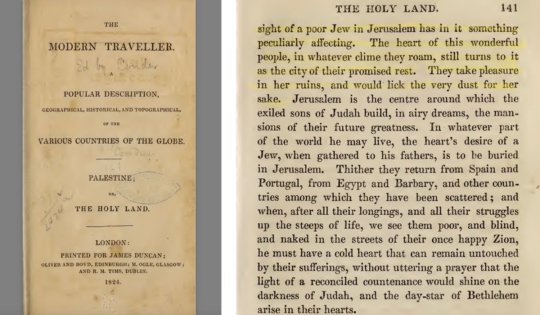
Captain Allen
@CptAllenHistory
57 notes
·
View notes
Note
Who are your siblings and what is your relationship with them?
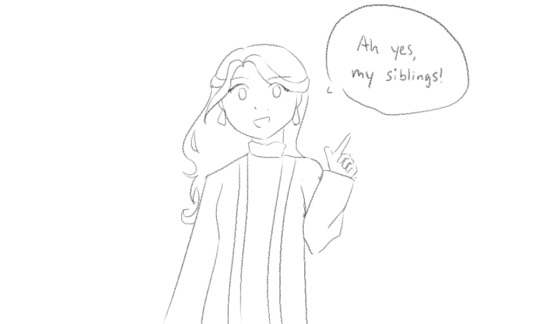
You could say I'm the literal middle child of my family, given that I share a border with all my siblings. So in a sense...I'm the center of Central Asia!


Kazakhstan is my younger brother! He's known for his nomadic history years back, falconry, and for being the space hub of the now dissolved Soviet Union.
Yuri Gagarin, the first man to ever go to outer space, was launched in Baikonur, Kazakhstan. A little after his independence, Kazakhstan created his own space program, and enjoys keeping up to date with the latest news on space exploration and astronomy(NOT astrology), and won't hesitate to tell you about it. Please listen to him, his eyes light up like stars when he speaks.
Linguistically, he's the closest to Kyrgyzstan and then me. Though due to sharing a border with Russia, he's lost a lot of his language and tends to use more Russian loanwords.
He's great at horseback riding, given his nomadic history from years back. He, like Kyrgyzstan, loves fermented mare's milk, called kumis! And he also loves eating horse meat. Don't knock it till you try it!
He's the "face" of Central Asia, and has been insistent on us Central Asians working together as a team under regional unity(ironic since he declared independence from me way back when I was the Bukharan Khanate...).
Since borders have never really been concrete in Central Asia(not until the Russians came, that is...), there's a significant ethnic Uzbek population in the south of Kazakhstan, namely in places like Turkestan and Shymkent.
He's also been the most modernized Central Asian nation, and talks to Russia the most, whether he likes it or not(he doesn't). Regardless, I really do admire him for being the "trailblazer" representing the rest of us Central Asians.
However, bearing the brunt of all this comes with its drawbacks. I better get him to stop smoking at some point...
Also. Don't ever talk about B*rat in front of him. America made the mistake of doing that once.

Then we have my older brother Kyrgyzstan. He's... a handful. We've had a history of border disputes that only recently resolved, involving our diasporas in each other's regions. There's a large population of Kyrgyz-Uzbeks in Uzbekistan, and a population of Uzbek-Kyrgyz in Kyrgyzstan.
He's dependent on me for fuel and gas...so my old boss used to turn off pipelines or put off delivery time periods as a way of getting what he wanted.
But we have our moments where we get along now and again. We both worked together in the Basmachi Revolt of 1917 to fight against Imperial Russia. However, it failed when the Russians tried to increase nationalism in each of our regions to split us up... what with calling Uzbeks more "civilized" and "sedentary" than the "nomadic" Kyrgyz.
The both of us are also rather religious and sometimes nag our other siblings(Kazakhstan i mean Kazakhstan) into cutting down their vodka intake(Kyrgyzstan can't resist kumis though...it's his soft spot. What a hypocrite). We also jump Kazakhstan every time he uses a Russian loanword when he could've used a native word.
There have been moments where I was in control of some parts of his territory under the Emirate of Kokand...until he successfully broke away from my rule. Hmph.
I do admire how Kazakhstan and Kyrgyzstan both are very outspoken and are able to protest at all...something I don't have.
He, like Kazakhstan, also enjoys horseback riding, and is good with blacksmithing. And he enjoys eavesdropping on Tajikistan and my gossip... he tries to play it off like he doesn't care, but I don't buy it.
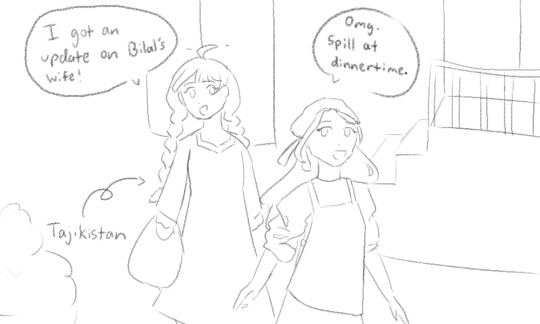
My sister Tajikistan is a very bubbly person. We're both very much alike. A lot of Tajiks look like Uzbeks, and vice versa! There's also a lot of Uzbeks and Tajiks living across our borders. However, as border sharers do, Tajikistan had tension with me and Kyrgyzstan for a while, especially during my former boss's tenure...
That weird sproingle on her hair is a result of years of Persian influence, what with sharing a border with Iran. That's why she's kind of the odd one out. She speaks Persian instead of a Turkic language like the rest of us, but her script is in Cyrillic because of Russian colonization, so she kind of sticks out among Iran and Afghanistan.
And like with Kyrgyzstan and Kazakhstan, I also controlled parts of Tajikistan under the Bukharan Khanate...
(Can you stop flexing with your whole "I ruled over all of you guys" thing? It's super annoying. Thanks ❤️ -T)
Tajikistan, stop hijacking my blog!
Anyway, when she's not gossiping with Turkmenistan and I, she loves decorating the sleeves of her dresses with elaborate embroidery and blasting Persian songs on full volume.

Finally, my other sister Turkmenistan! A lot of people don't know much about her and she definitely does tend to keep to herself more. She's most famous for...how weird her bosses can be. She gets awful tired of her boss sometimes. She had to record a video of him rapping once! Kazakhstan and Kyrgyzstan can't get enough of it, they've made up games and bets on what Turkmenistan's boss will make her do next...
Ashgabat is really pretty...it just seems a bit lonely at times. Speaking of pretty, Turkmenistan has a long history of ornate headwear and jewelry. She knows a lot about jewelry, especially silver, and we'll talk about our pretty pieces sometimes! I know I can count on her to find something for me to wear on weddings and other special occasions.
Linguistically, she's closest to Turkey and Azerbaijan. A lot of her people go to Turkey to study at Turkish universities, and for travel. Turkey's trying to get her to join the Organization of Turkic States as a member instead of an observer state. It's still up in the air on what she'll do...
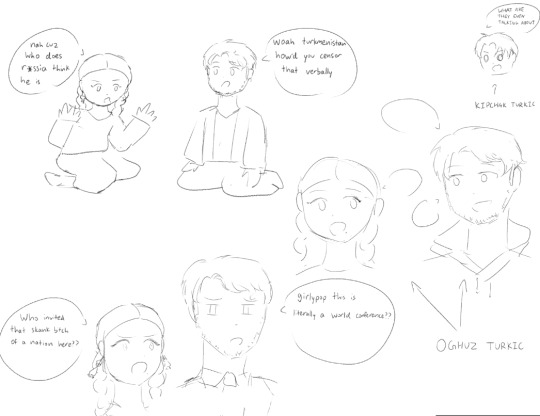
Those are all my siblings! I hope this helped!
#ask#aph uzbekistan#hws uzbekistan#aph kazakhstan#hws kazakhstan#aph kyrgyzstan#hws kyrgyzstan#aph tajikistan#hws tajikistan#aph turkmenistan#hws turkmenistan#first post!! i hope you all like it!!
40 notes
·
View notes
Note
Re: the Lost In Translation fanart, it makes an interesting point that is fun to explore (ie how Earth C’s perception of the beta kids is so wildly different from who they truly are and the conflict that creates) but only points out the surface level ways the public that literally worships them are wrong (race and gender), and doesn’t dive deeper into the much more interesting questions it leads to.
That being said, I also feel like the follow-up they did where June says “what do I say to them? I’m not white?” Is an annoyingly literal take on their original depictions. I feel like the hs characters are less white coded (bar a few characters like Dave) and more just Very American because Hussie is Very American.
Someone from a diaspora like me, for example, wouldn’t have much of any immediate indication that I’m Armenian other than my appearance since I’m culturally American (like the hs kids). Am I suddenly lost in translation, just because I don’t speak my father’s mother tongue, or eat dolma every day? Is Jade suddenly not [insert race/ethnicity here] because she talks like an American bc she grew up on the Internet/talking to the other Beta kids? Much like the story being set in 2009 is important in informing the reader of the cultural context, so is the fact that the author is writing culturally American characters regardless of what their intended ethnicity is.
Idk it just seems silly to take an obvious stylistic choice made to save time and use it as an emblem of white washing when 1.all races are valid hc for the kids and 2. Just because a character talks like what you think a white American talks like doesn’t necessarily mean they’re white coded, just American.
Anyways my point is the artist had some good points but ultimately kinda makes a mountain out of a molehill
I wonder if you tell that to the artist, will they block you for it. But I also think it makes some weird implications that they did not address or really think deeply about like how said interpretation came from the Carapacians, literal chess people who have two skin tones. Were the kids only depicted white because the Prospitians won the won, thus Dersites must give in? Don't forget as well that Wayward Vagabond was among them, who revolted against monarchy and his people being part of it. Does that mean Wayward Vagabond was fine letting them depict the people as this? Even if he was """"""""close"""""""" to someone like Dave Strider (who the fuck is John Egbert? Exile? The fuck was that?) Fanarts and interpretations can carry a lot more meaning if one looks deeper. Ex: Making Eridan trans. People will forget the fact said character was killed off in the story. Does that mean they are fine with a trans character dying in the narrative, no matter the reason? What about making Jane fat? Isn't that just validating Caliborn's insults when he kept saying that to make her feel awful? Does that mean the sexist Cherub was right and was all along validating her appearance?
9 notes
·
View notes
Text
The Jews of Spain: A History of the Sephardic Experience
"Migration of Jews throughout the Roman diaspora (c. 200 BCE-200 CE) was so widespread that the ancient Greek geographer Strabo reportedly exclaimed, ‘This people has already made its way into every city, and it is not easy to find any place in the habitable world which has not received this nation and in which it has not made its power felt’ (Josephus, Antiquities, XTV, 115)."
La migración de los judíos a lo largo de la diáspora romana (c. 200 a.C.-200 d.C.) fue tan generalizada que, según se informa, el antiguo geógrafo griego Estrabón exclamó: "Este pueblo ya se ha establecido en cada ciudad, y no es fácil encontrar un lugar en el mundo habitable que no haya recibido a esta nación y en el que no haya hecho sentir su poder" (Josefo, Antigüedades, XIV, 115).
"Jewish merchants and travelers followed the expansion of Phoenician and Syrian trading colonies all along the shores of the Mediterranean, certainly including the Iberian peninsula."
Los comerciantes y viajeros judíos siguieron la expansión de las colonias comerciales fenicias y sirias a lo largo de las costas del Mediterráneo, incluyendo ciertamente la península ibérica.
"Jews in the Roman diaspora flourished in some measure because the Empire recognized Judaism as a legal religion (religio licita)."
Los judíos en la diáspora romana prosperaron en cierta medida porque el Imperio reconoció el judaísmo como una religión legal (religio licita).
"Rome also continued to recognize the Jewish cultural ties to their national homeland in Palestine even after the great Jewish revolts there in the first and second centuries."
Roma también continuó reconociendo los lazos culturales judíos con su patria nacional en Palestina incluso después de las grandes revueltas judías en los siglos I y II.
#The Jews of Spain: A History of the Sephardic Experience#Jane S. Gerber#judaísmo#judaism#jewish#judío#antisemitismo#sephardic#sefardí#cultura sefardí#historia sefardí#roma#cultura judía#palestina#revueltas judías#siglo i#siglo ii#comerciantes judíos#diáspora#españa#ispania#hispania#migración judía#sephardic history#judíos
13 notes
·
View notes
Text
pomegranates in judaism
pomegranates have deep significance within judaism. they are thought to have 613 seeds, similar to the 613 mitzvot (commandments) that observant jews adhere to. of course, there aren’t necessarily 613 seeds in every pomegranate let alone one, this is just and old-age theory that is shared for historical/nostalgic/religious reasons.
rosh hashanah
pomegranates are often the fruit of choice of a rosh hashanah*** tradition of eating a “new fruit.” a new fruit is a fruit someone hasn’t eaten in a long time. in sephardic*** tradition, it is customary to have a rosh hashanah seder***, in which a pomegranate is one of the foods incorporated into it.
jewish texts
pomegranates are also mentioned in jewish texts, as well as being listed as one of the “seven species”***:
a pomegranate was one of the things brought back by the spies who scouted the land of canaan*** (torah, numbers 13:1-15:41)
pomegranates decorate the robes of a high priest (torah, exodus 27:20-30:10)
a wife of a rabbi disguises herself as a sex worker and seduces him, demanding a freshly picked pomegranate as a form of payment (talmud, kiddushin 81b)
many judaica*** is adorned in pomegranates, such as torah scrolls, mezuzot***, kippot***, candle holders
coins
pomegranates are found on ancient judean coins. recently, a coin was discovered dated to the bar kokhba revolt*** in 132-136 CE.
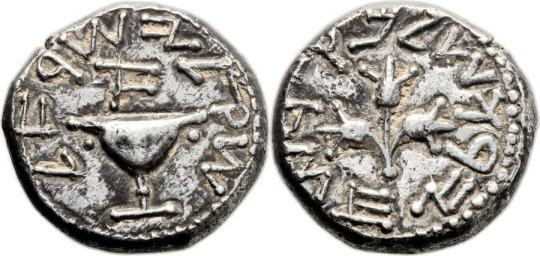
hope you learned something new ♡
*** glossary
rosh hashanah: a jewish holiday celebrating a new year
sephardic: jewish diaspora population that has ancestors who have lived in the iberian peninsula
seder: jewish ritual service + ceremonial dinner, usually observed on pesach (passover) but also observed on rosh hashanah by sephardic jews
seven species: seven products that are listed in the torah as being special types of species; it includes wheat, barley, grape, figs, pomegranates, olive (oil), and date (date honey)
judaica: jewish literature, customs, culture (examples include mezuzot, kippot, menorah, candles used for jewish observances, etc.)
mezuzot (singular → mezuzah): a small decorative case that holds a parchment with religious writing; placed on the doorpost of jewish homes
kippot (singular → kippah): also known as a yarmulke or skullcap, it is circular in shape and traditional placed on the head of jewish men, but women and gender non-confirming folks wear them as well
bar kokhba revolt: large-scale armed rebellion/war led by jews against the romans rule of their land
sources
https://www.myjewishlearning.com/article/9-jewish-things-about-pomegranates/
read about the judean shekel: https://www.timesofisrael.com/ancient-shekel-sells-for-1-1-million/

34 notes
·
View notes
Note
I mean this with ZERO disrespect, I'm simply trying to educate myself on this matter because it impacts us all.
All I can find about the Israel-Palestine conflicts is the fighting. What I want to know is why.
Whats the backstory? Why are they fighting? Why is everyone persecuting one another and who in the government is responsible?
I heard Hamas bombed Gaza and has taken hostages. What brought on this violence? Do all the Palestinians agree with this?
(More personal opinion questions, you don't need to answer these)
Do you agree with Hamas? Do you think that violence was a last resort to free Palestine? Do you think it's justified?
One thing I do hate is people saying "I hate *this group of people*, they are bad." They can't all be bad. So I don't like the titles of Anti-Israel/Anti-Palestine because you're assuming everyone there is on the same side.
In conclusion, people are stupid. The government is messed up. Citizens and families want to live so why won't the government let them?
I’m genuinely grateful that you’re asking because educating ourselves is one of the greatest tools we have. I’ll break it up into sections.
1. What’s the backstory?
In 1918, the Ottoman Empire conceded land they controlled to Britain (this is still an ongoing problem regarding many, many things because the Ottoman Empire controlled many nations that weren’t theirs to control if you catch my drift. Look up the Elgin marbles for a fun wormhole of WTF Britain). The Arab Revolt was backed by France and Britain with the promise that if the Arab fighters could force the Ottomans out of the area of the Levant, they would be granted independence (McMahon-Hussein Correspondence) but, plot twist, France and the UK instead split the region (Sykes-Picot Agreement). The Balfour Declaration of 1917 expressed Britain’s support of the creation of Israel. After they gained control of the region, they established Israel and systematically began to take the land of Palestinians.
Note: Zionism began as a belief in the mid-18th century. Many, MANY Jewish people do not subscribe, encourage, or promote the idea of a Jewish state. I do not view Israel = Jewish because it is antisemitic to imply that the Jewish diaspora all exist under the state of Israel. Especially when many Jewish people disagree with Israel.
Note note: Zionism was created as a response to the numerous pogroms and other antisemitic hate crimes affecting Jewish people. the Holocaust was fucking awful. No ifs ands or buts. Genocide doesn’t justify genocide, however.
Continuing on. So, clearly, the Palestinians are pissed. They were promised independence and instead now have their land taken by a global superpower who has historically fucked over hundreds of countries (another wormhole for you: India under British rule, Ireland and literally all of its history with England, the transatlantic slave trade under Britain, Africa under British rule, Australia and the treatment of Aboriginals under British rule, America and the British, it goes on). Palestinians revolted from 1936-1939 because, again, their home and promise of independence was being stolen. They lost against the British army but then 1939 was a bit of an important year for everyone and they world was sucked into another world war.
With WWII saw the birth of the United Nations, an organization that might sound important but has the moral backbone with the equivalence of a chocolate eclair. The UN said “hey, why don’t we split Palestine and Israel into two different states so maybe they’ll stop fighting” (United Nations Partition Plan for Palestine) and, as a result, the 1948 Palestine-Israel war began. Hundreds died. 700k+ people were forced from Palestine and spread across the world in what is called the Nakba. Israeli colonizers quite literally moved into homes that had been occupied by Palestinians only days before. In 1918, the Jewish population of the region was 8.1%. In 1948, when Israel was recognized as a nation by the UN, the Jewish population of the region was 82.1%.
2. There’s plenty of infographics and videos explaining the next few decades but I’m already writing an essay basically so the gist is: Palestinians keep losing their homes and Israel keeps taking them. Israel forces the Palestinians into smaller and smaller parcels of land until the control virtually everything but a small strip of land (Gaza) and the West Bank. That brings us to 2006.
Hamas was elected in 2006 over rivaling Fatah, gaining majority amount of seats in the Palestinian Legislative Council under the promise that they would help end the corruption many Palestinians were frustrated with. Instead they took military control over Gaza and established an autocratic state over millions of people who were already suffering under barbaric policies and practices from Israel. Politicians.
This is where things get a little…messy morally. Do I agree with Hamas? Fuck no. I couldn’t care less about Hamas because they don’t care about Palestinians. Do all Palestinians agree with Hamas? Firstly, you will rarely find a group of people where all agree with some. Secondly, I don’t think they appreciate being bombed by Israel while Hamas leaders chill somewhere else. The people of Palestine are the victims of Hamas and Israel.
Did some Palestinians celebrate Hamas’ actions? Yes. Do I think violence is a last resort? Yes and no. Do I think it’s justified? Yes and no.
Lemme expand on those last two points. I want to be an international human rights attorney someday. The loss of innocent life is always a fucking tragedy that I hope to help prevent or to bring justice for them. I understand violence. I understand why people are so angry. I understand the rage and grief Palestinians feel. 75 years of having their rights stripped away, their homes quite literally occupied, their land and culture chipped away piece by piece, and their children bombed and shot at.
“But how on earth can you think violence is justified if people get hurt!” The American Revolution was an act of violence that got numerous people killed yet you will rarely find someone who won’t justify it. Ukraine defending themselves against Russia wanting their land with no regard to how many Ukrainians they kill is considered justified.
People just seem to focus on the “violence is bad” aspect of things once POC are involved. Yeah, I said it. Americans tired of taxation, of British rule, and of not having their independence causes property damage, argues with soldiers in the streets, and starts a war is okay but when Palestinians do it, it’s a problem? When Black Americans ask to stop being brutalized by the police, it’s a problem? When Black South Africans ask to end an apartheid state, it’s a problem? When Central Americans ask for western nations to stop causing coups that destabilizes their nations, it’s a problem? I could go on.
Yeah, violence is bad. Violence is also the way that a lot of countries are where they are today. Violence is sometimes the only reason why things changed. Violence is enacted on the oppressed everyday yet people only seem to really care once the oppressed fight back.
3. I’m anti-Israel because I don’t agree with the government and the state of Israel. I don’t agree with their 75 years of violent oppression of Palestinians. I don’t agree with their current or past actions. I’m anti-Hamas. I think they’re a vacuous organization that is more focused on getting what they want than considering the consequences of innocent Palestinians.
I’m also really fucking furious at Joe Biden’s insistence that we send aid to Israel. We have given Israel $260 BILLION since 1948. BILLION. And yet we have people dying because they can’t afford healthcare. Students leaving school because they can’t afford tuition. We have 8 year olds in debt because they can’t afford school lunches. The unhoused population is growing rapidly due to the housing crisis. I can sense the unemployment rate creeping higher. I know many people who have lost their jobs this past month alone. We’re days away from another government shutdown and they can’t vote on a speaker.
American politicians would rather send Israel billions more to bomb innocent people than to feed their own citizens. That, in my opinion, is a sort of violence that can never be justified.
#honey.txt#sorry for the essay#but really not sorry#I took a whole class on the global south during the Cold War and it really opened my eyes#granted my specialization is Central America but plot twist#America has been at the center of fucking stuff up there too
36 notes
·
View notes
Text
as a communist I obviously support the abolition of states and countries. the issue with the "no state solution" is not that states should exist, it's that there's only one state which is capable of bringing about no states. if palestinians dissolved their state today, they would be exterminated without any organised force to defend them. and palestinians are simply not going to revolt against their own government when both the palestinian proletariat and the palestinian bourgeoisie (if the latter category can even be said to meaningfully exist atm, at least within palestine and not in the diaspora) are directly at risk of immediate death at the hands of the occupation. the occupation creates class collaboration among palestinians, not class warfare leading to a proletarian revolution within palestine.
if you want no states, get rid of israel first—only then can a movement for statelessness in palestine develop, in the absence of immediate risk to life at the hands of a colonising power.
24 notes
·
View notes
Text
A high-ranking white officer under the command of Toussaint Louverture in the side of Haitians

I had already mentioned a certain Monnereau here (https://www.tumblr.com/nesiacha/751677840407330816/on-this-day-die-louis-delgres-freedom-fighter?source=share), a white Creole who was hanged following the repression of the Guadeloupe revolt against Napoleon. I had said that, in my own opinion, he reminded us that there were actually a significant number of whites opposed to the reestablishment of slavery (thus debunking the idea with other arguments that Bonaparte was simply a product of his time regarding slavery). I even went further, saying that he had saved the honor of France (even more admirable considering he had nothing to gain and everything to lose by joining the former slaves who rebelled against General Richepanse).
Today, I just learned that there was apparently also a high-ranking white officer who joined Toussaint Louverture against Bonaparte's troops sent to Haiti to reestablish slavery. In my opinion, I am sure that there were other whites who joined the former insurgent slaves; after all, some researchers claim that the atrocities committed by Leclerc and later Rochambeau contributed to desertions*. This high-ranking officer was named Barada or Baradat. To my great despair, I can only find this about him: "Sans-Souci had no sooner drawn his sword than he was arrested, as well as General Baradat, by Christophe, sent to the Cape, and embarked for France" (the book is Toussaint-Louverture by John R Beard). It seems like so many anonymous figures, he fades into obscurity, and that is why I urge anyone who knows something about Baradat not to hesitate to share more information about him
*Notably Marlène Daut, Professor of African Diaspora Studies at Yale University. However, at the moment, regarding the specific point she mentions (that is, the executions by drowning of former insurgent slaves) about the massive defections of French soldiers, I urge caution on this precise point.
7 notes
·
View notes
Text
Palestinian identity is today considered an exclusively Arab identity. If you have any questions about that, consult the 1964 PLO charter. This explicitly excludes Jews, who are not Arab. However much activists may try to revive the terms “Arab Jew” or “Palestinian Jew”, Jews never identified as Arabs, nor were ever accepted as Arab by Arab Muslim or Christian neighbors. At most, Arabic-speaking Jews identified as mistaravim, “Arabized”, just as many Iberian Christians called themselves Mozarabic under Islamic rule. During the days of the British mandate, “Palestine” was a geographic expression accepted only by Jews; Arabs in the mandate considered themselves Arab, whose political connection, if any, was to Syria. After 1948, those “Palestinian Jews” became Israeli; it was not until the late ‘50s that the Arab population of the West Bank and Gaza, and the diaspora from the former British mandate displaced by the 1948 war, began to adopt a distinct Arab identity as Palestinians.
These Palestinians bear no relation to the Philistines, the Peleshet, of the early Iron Age. Those Philistines were a Sea People, probably Greek, who were settled in five city-states around the contemporary Gaza Strip after their unsuccessful invasion of Egypt. Their civilization was crushed by the Babylonians by the 5th Century BC. They were driven extinct. Their cities, their language, their culture, their identity were all snuffed out. They assimilated with other groups and were scattered to the four corners of whatever empire ruled at the time. Contemporary Arab Palestinians have no relation to the Iron Age Philistines.
Even the word “Palestine” is likely a Hobson-Jobson blending “Peleshet” with the Greek “Palaistine”, meaning ‘wrestles’, a calque on “Yisrael”, i.e. Israel. It was only ever an exonym imposed on the region by European empires. The Romans renamed Judea (Yehuda, the origin of our endonym “Yehudi”, and “Jew”) Syria Palestina in the 2nd Century to assert their ownership of it and erase any sense of Judean autonomy after the Bar Kochba Revolt. Since then, the term only had meaning to Europeans: Romans, Byzantines, Crusaders, imperialists. Palestinian is not an ancient or indigenous identity.
But none of that matters.
Arabs have lived within the borders of modern Israel since Roman times, with Nabateans and Ghassanids both settling in the Negev. Arabs immigrated en masse to Eretz Yisrael in numbers following the Muslim conquest of the 7th Century. They have been here a very long time. They have the right to live here and to self-determination where they constitute a majority, just as Jews have the same right where Jews predominate.
Whatever they called themselves in the past, however admixed they are, however many came from Syria and Egypt in the 19th and 20th Centuries, Palestinians exist now and are entitled to respect and sovereignty. They have every case for a fully viable state in the West Bank and Gaza bordering a Jewish-majority Israel with mutual recognition and normalized relations. Palestinians do not have to legitimize themselves by erasing Jewish history, and Jews don’t have to justify our self-determination by denying Palestinian identity. Anyone who rejects this eventual and inevitable outcome of negotiations has no interest in peace or justice.
3 notes
·
View notes